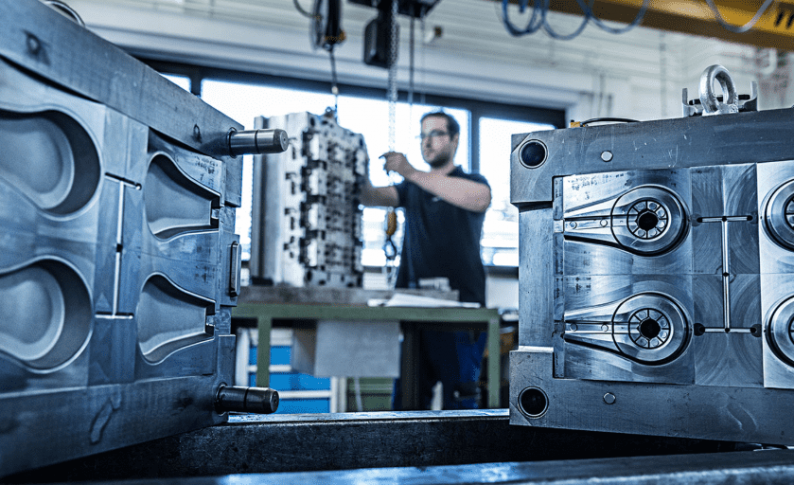What Digital Transformation Means for Small and Midsize Manufacturers
11 Sep 2018 | by Brett Mundell
Manufacturers have traditionally led other industries in the implementation of transformative technology. However, digitization of manufacturing operations and functions has come about more out of necessity rather than just preference. Digital technologies are critical to small and midsize companies that hope to streamline production processes and drive value, setting them apart from their competitors.
Here’s how game-changing digital technologies are helping SMEs in manufacturing to achieve their objectives more cost-effectively:
#1 – Cloud Computing
According to an Oxford Economics study, 59-60% of small and midsize manufacturers plan on leveraging the cloud to host more forward-looking technologies, such as robotics and on-demand 3D printing. The companies need these technologies to stay relevant at all times.
For example, cloud-based Enterprise Resource Planning solutions are helping manufacturers automate specific back-office functions to increase their operational efficiency. ERP software integrates every aspect of manufacturing workflows such that all business functions rely on a centralized database.
The system provides a real-time, 360-degree-view of materials and supplies, human resources, scheduling, sales, customer relations, finance, and accounting. With timely access to accurate information, manufacturers can streamline production processes, improve customer service, and reduce costs.
Digitizing the supply chain enables manufacturing companies to automate mission-critical workflows. It’s helping decision-makers in the industry to identify resources that need deployment or adjustment to meet production objectives in time. Also, automating approval processes and reporting increases speed to market, giving manufacturers a competitive edge.
#2 – On-Demand Additive Manufacturing
On-demand 3D printing is the future of manufacturing. Indeed, additive manufacturing (AM) wouldn’t materialize without digital technology. It involves building physical, 3D products by adding successive layers of raw material. Typical applications include prototyping, industrial tooling, and the development of market-ready products like footwear and prosthetics.
Potential benefits of on-demand AM include:
- Custom products: Through AM technology, manufacturers offer their customers a way to build highly personalized products.
- On-demand availability: Products are available on-demand via 3D printers, enabling manufacturers to differentiate themselves by responding quickly to customer demand.
- Lower shipping costs: Strategically-located 3D printers mean shorter delivery times and shipping distances. With cloud-based, on-demand AM technology, small and midsize manufacturers can reduce or eliminate the cost of sourcing parts overseas.
#3 – Big Data and Analytics
SMEs in the manufacturing industry are leveraging big data to extract in-depth insights into raw material usage and movement of finished parts through their system. Machine learning (ML) algorithms are helping these companies produce actionable business intelligence by analyzing data from disparate structured and unstructured sources. The resultant analytics may inform the development of high-quality products to drive revenue. It also helps streamline manufacturing processes to cut costs.
#4 – Internet of Things (IoT)
Manufacturers are using IoT technology to digitize key assets and workflows to streamline operations, grow business, and surpass customer expectations. They’re attaching digital sensors to physical production systems or assembly lines. These interconnected devices provide better visibility into the whole value chain, enabling manufacturers to extract system performance data, spot potential bottlenecks, and drive operational efficiency.
#5 – Mobile Technology
Mobile technology allows small and midsize manufacturers to grow and expand to new locations and markets without incurring extra infrastructure costs. Their employees can access company networks and cloud-based computing resources via the internet to work and collaborate from remote locations. As such, technology increases employees’ productivity.
Digital transformation enables small and midsize manufacturers to streamline and automate mission-critical processes, resulting in operational efficiency. It provides in-depth business intelligence to inform product development, hiring decisions, customer engagement, and supply chain strategies. These companies are leveraging an array of technologies, including the cloud, IoT, ML, robotics, and mobile solutions, to drive business growth and beat their competition.
Do you desire to adopt forward-looking digital technologies to achieve your business goals and keep pace with your manufacturing competitors? Contact us today for an expert evaluation of viable ERP and technology options!

Brett has more than 20 years of business software sales and company management experience. Brett has been involved in more than 300 ERP projects. His passion is customer satisfaction, making sure every client is more than just satisfied. Brett wants our customers to be driven to refer their friends and peers because we offer the best services and technology available and because we exceeded their expectations.





Leave a comment